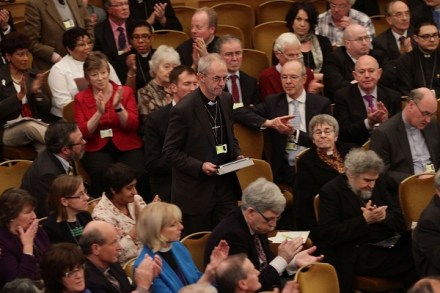Backbench driver
The burdens of office can wear a man down. When Nick Herbert was the minister for policing and criminal justice, he looked exhausted; as if he was carrying the troubles of two departments on his shoulders. But having quit the government in the September reshuffle, he is relishing his newfound freedom. He says he can fit in an interview on Monday morning, between the bishop and his bank manager. Happy to come between God and Mammon, I stroll along to his office, which is still on the House of -Commons’s ministerial corridor. No longer limited by collective responsibility, he has much to say. Herbert’s first major intervention as an ex-minister

















